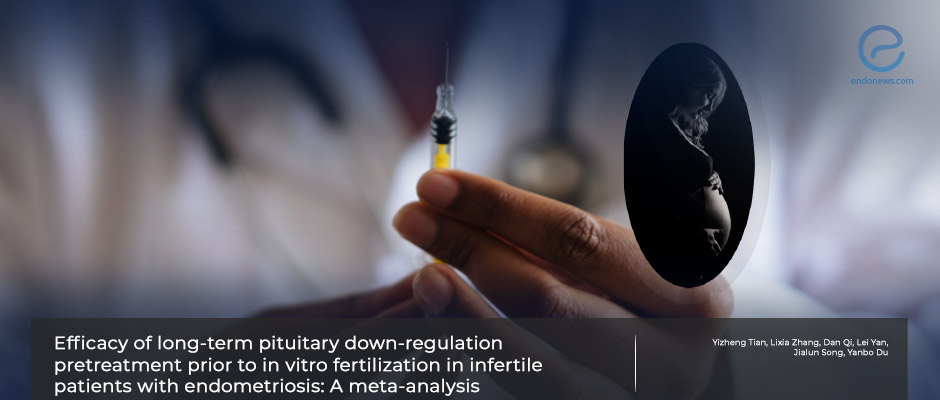How Good is Ultra-Long GnRH-a Treatment Before IVF for Women With Endometriosis?
Mar 13, 2023
Treatment with gonadotropin-releasing hormone agonist (GnRH-a) for at least three months before IVF is detrimental for women with endometriosis.
Key Points
Highlights:
- Ultra-long GnRH-a treatment seems to have an adverse effect on pregnancy outcomes in women with endometriosis.
Importance:
- Women with endometriosis should not be treated with ultra-long GnRH-a before IVF as was previously recommended.
What's done here:
- This is a literature review and meta-analysis to clarify the effect of GnRH-a treatment on reproductive outcomes in women with endometriosis.
Key results:
- Ultra-long GnRH-a treatment does not improve the outcomes of IVF/ICSI in women with endometriosis.
- The ultra-long protocol has adverse effects in terms of live birth and fertilization rate.
Limitations:
- The specific type of endometriosis was not analyzed.
- Adequate information about the data on outcome indicators such as fertilization rate is missing.
- The sample size was small and the treatment rejection rate was high.
- Frozen embryo transfer data are not included in the study.
Lay Summary
Pretreatment with ultra-long gonadotropin-releasing hormone agonist (GnRH-a), i.e. for at least three months before in vitro fertilization (IVF), has an adverse effect on patient pregnancy outcomes with endometriosis, according to a meta-analysis of the literature published in the Journal of Gynecology Obstetrics and Human Reproduction.
Previous research has led to controversial findings about the influence of ultra-long GnRH-a treatment on reproductive outcomes for women with endometriosis undergoing assisted reproductive treatments such as IVF or intracytoplasmic sperm injection (ICSI).
In the present study, a team of researchers from China led by Dr. Yanbo Du reviewed the literature and identified seven randomized studies about the effect of GnRH-a treatment on reproductive outcomes in women with endometriosis.
When they analyzed the findings, the researchers found that the ultra-long protocol had an adverse effect on the fertilization rate and live births.
However, there was no statistically significant difference between the long and ultra-long protocols for the rest of the outcome indicators.
“The findings of this meta-analysis suggest that ultra-long GnRH-a does not appear to improve the results of IVF/ICSI treatment outcomes in patients with endometriosis,” the researchers concluded.
Previous research suggested that treatment with GnRH-a for three to six months could increase the pregnancy rate by more than four times. So the 2014 European Society of Human Reproduction and Embryology guideline recommended that women with endometriosis be pretreated with ultra-long GnRH-a before IVF. However, in 2019, the recent guidelines overturned this recommendation and no consensus has been reached on the efficacy of the ultra-long approach in endometriosis patients.
Research Source: https://pubmed.ncbi.nlm.nih.gov/36690299/
assisted reproduction IVF ICSI fertilization rate pregnancy outcome gonadotropin-releasing hormone agonists GnRH-a

